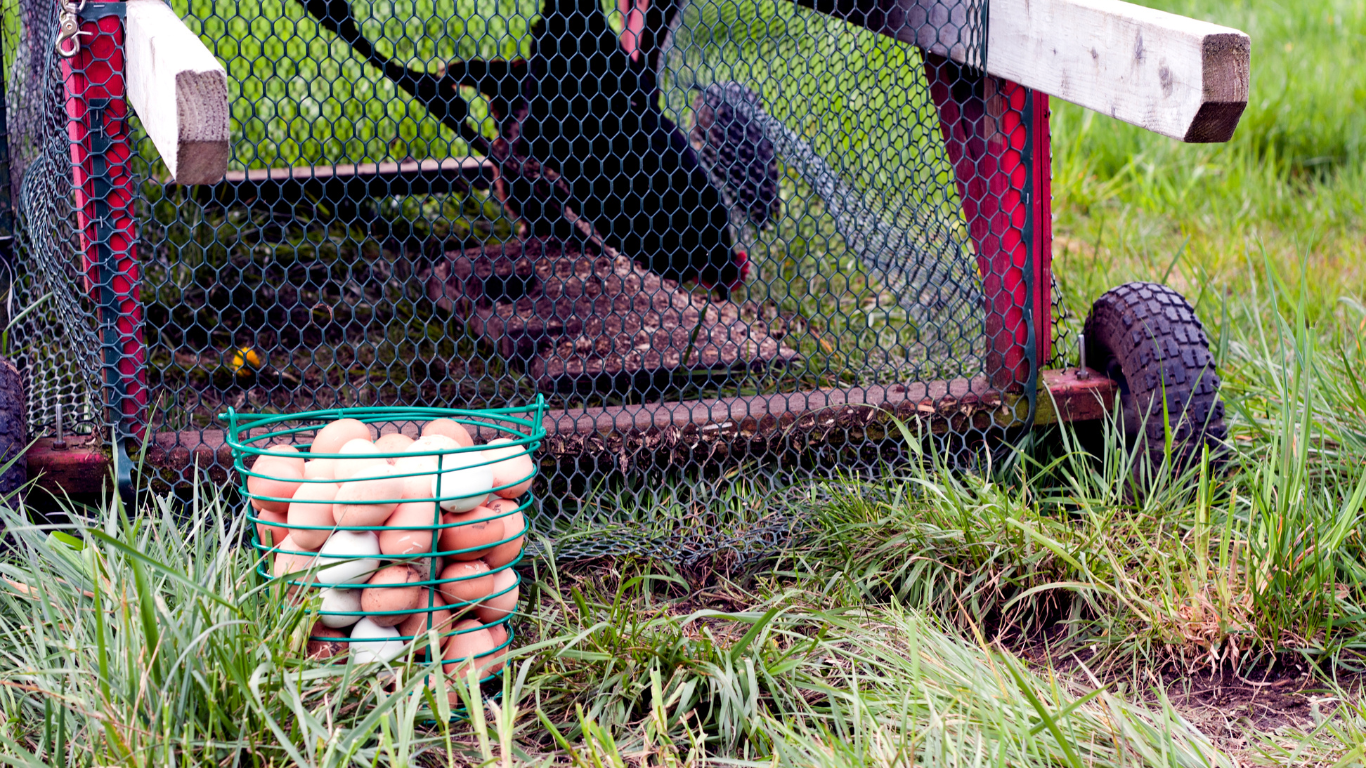Sustainable Eating Made Simple: Easy Organic Meals
With environmental concerns taking center stage now more than ever, have you considered the impact your diet has on the planet? Your dietary choices play a pivotal role in your individual carbon footprint and overall greenhouse gas emissions. Let’s explore how to make sustainable eating simple and accessible, aligning your diet with eco-conscious choices that nourish your body and protect the environment.
Understanding Sustainable Eating
Sustainable eating is a mindful approach to food consumption, aiming to minimize the environmental impact of your meals while ensuring your body receives essential nutrients. A sustainable diet doesn't mean giving up meat, however. After all, studies have shown how nothing can beat the nutritional value real meat offers. Put simply, sustainable eating is about making informed dietary choices.
Practical Tips for Sustainable Eating
Making the shift to sustainable eating can be an enjoyable journey filled with delicious and eco-conscious choices. Here are some practical tips to help you embrace sustainable eating with ease:
Make Mindful Meat Choices
When it comes to meat consumption, opt for quality over quantity. You don't need to eliminate meat, but it's essential to make responsible choices. Consider the following:
· Choose pasture-raised, regenerative meats: Pasture-raised beef, chicken, eggs or pork are raised in more humane conditions, and they often have a lower environmental impact compared to conventionally raised counterparts. These animals have access to open spaces and natural grazing, reducing their stress and overall carbon footprint.
· Next, prioritize organic meat: Organic meat is produced without synthetic chemicals and antibiotics, making it an eco-friendlier choice. Some brands offer organic meat products from ground beef to chicken. Regenerative is still better than organic. Organic if often out of reach for small farms. While they may practice organically, they may not of the funds to get the organic seal. Regenerative is something all farmers can do.
While Regenerative agriculture is based around observable improvement to ecological and social function of the farm and community, organic agriculture is more about a set of rules to follow which are mostly things not to do. i.e. don't use synthetic pesticides.
Focus on Real Food
Incorporate more whole food into your daily meals. Here's how:
· Seasonal and local produce: Choose fruits and vegetables that are in season and sourced locally whenever possible. Seasonal produce often has a smaller carbon footprint because it doesn't require long-distance transportation.
Practice Waste Reduction
Minimizing food waste is a crucial aspect of sustainable eating. Here's how to achieve it:
· Meal planning: Plan your meals and create a shopping list to ensure you only buy what you need. This reduces the likelihood of food going to waste.
· Creative leftovers: Get creative with leftovers. Turn last night's roasted vegetables into a delicious stir-fry or repurpose cooked grains into a hearty salad. By using leftovers creatively, you not only reduce waste but also save cooking time and money.
· Opt in for Ugly Foods: Order groceries from online grocers like Imperfect Foods or Misfits Market that rescue foods from being wasted. These foods are perfectly fine, but don't reach the beauty standards to be sold at a grocer.
Support Local Food Sources
Support local farmers and producers by choosing locally sourced products. Here's why it matters:
· Reduced carbon emissions: Locally sourced foods have a shorter journey from farm to table, resulting in fewer carbon emissions associated with transportation. You're not only supporting local businesses but also reducing your environmental impact.
· Preserving biodiversity: Local farms often focus on heirloom or native crop varieties, contributing to biodiversity. By purchasing from local sources, you help preserve these unique plant and animal species.
Choose Regenerative, Biodynamic and Organic Produce
Consider organic options when shopping for groceries:
· Reduced chemical usage: These farming practices prioritize natural methods over synthetic chemicals. Choosing organic foods means supporting farming methods that are less harmful to the environment.
· Healthier soil: This farming promotes healthier soil by avoiding synthetic pesticides and fertilizers. Healthy soil is vital for sustainable agriculture and ecosystem health.
Minimize Processed Food Consumption
Processed foods are worse for your health and the environment. The water footprint increases for a processed food as more ingredients, more energy, more packaging and so on are added to the final product. Take potato chips, which have a water footprint of 125 gallons per pound, while potatoes – a primary whole food ingredient – have a water footprint of 35 gallons per pound.
· Read labels: Pay attention to food labels and ingredient lists. Opt for products with fewer additives and preservatives and more organic ingredients. Often, simpler ingredients are better for both your health and the environment.
The Importance of Sustainable Eating
Sustainable diets are increasingly crucial in today's global context, where climate change and food security are pressing issues. Our food choices significantly impact the environment, with some foods contributing more to greenhouse gas emissions and requiring more resources than others.
For example, the production and transportation of meat and non-traditional or out-of-season produce generate a much higher carbon footprint. Shifting toward sustainable diets not only mitigates our individual environmental impact but also contributes to a more resilient food supply chain and aligns with global efforts to combat climate change and achieve sustainability goals. For instance, get to know a rancher and pick up your meat from their farm nearby.
The Benefits of Sustainable Diets
The advantages of adopting a sustainable diet extend beyond personal health benefits, including positive impacts on the environment, the global economy, and public health.
1. Reduced greenhouse gas emissions: Sustainable diets significantly reduce greenhouse gas emissions by favoring locally sourced, seasonal foods that require less energy for transportation and preservation. By making responsible food choices, you can significantly decrease the carbon footprint associated with your diet.
2. Conservation of water resources: The water for pasture-raised beef is 95% from natural rainfall in the grasses they eat, which supports more sustainable water usage and helps preserve water resources.
3. Promotion of biodiversity: Sustainable diets encourage the consumption of a variety of foods, promoting agricultural diversity. This diversity is crucial for healthy ecosystems and can help prevent the extinction of certain plant and animal species.
4. Enhanced public health: Sustainable diets prioritize healthy, whole foods, which are associated with lower risks of chronic diseases like heart disease, obesity, and type 2 diabetes. Making sustainable food choices can lead to improved public health outcomes.
5. Economic benefits: Transitioning to sustainable food systems can create economic benefits, including increased job opportunities in sustainable farming and reduced healthcare costs linked to diet-related diseases. Additionally, consumers can save money by purchasing locally-sourced, in-season produce.
Your Health and Sustainable Eating
Embracing sustainable eating isn't just about reducing your environmental footprint; it's also a powerful way to enhance your overall health and well-being. Here's how making eco-conscious dietary choices can significantly impact your health:
Savings on Food Budget
One of the immediate benefits of sustainable eating is the potential for significant savings on your food budget. By prioritizing seasonal, locally sourced ingredients and minimizing processed foods, you can enjoy cost-effective and nutritious meals.
Seasonal produce is often more affordable because it's in abundance. When fruits and vegetables are in season, they are at their peak freshness and tend to be less expensive, meaning you can enjoy a variety of fruits and veggies without straining your wallet.
Weight Management
Sustainable diets can significantly contribute to weight management and the maintenance of a healthy weight. Contrary to the misconception that sustainable eating equates to a strict plant-based diet, it's all about balance and making informed choices.
For instance, sustainable diets naturally include high-fiber foods such as whole grains, legumes, fruits, and vegetables. Fiber aids in digestion and helps you feel full, reducing the likelihood of overeating. Animal-based protein is more nourishing than plant protein, takes longer to digest and reduces cravings leading to eating less processed foods and sugar.
Building Community Connections
Sustainable eating encourages you to connect with your local community and build relationships with local farmers and producers. These connections can have a positive impact on your mental and emotional well-being through a sense of community and support for local economies.
Shopping at farmers' markets, participating in community-supported agriculture programs, and getting to know the people who grow your food fosters a sense of belonging and community.
Cardiovascular Health
Sustainable diets, rich in real foods, including red meat and butter, are inherently heart-healthy. These dietary choices offer numerous benefits for cardiovascular health, including avoiding diabetes which is a primary cause of heart disease.
Sustainable Weight Loss
Sustainable eating can be a key component of a successful weight loss journey. It encourages a balanced and holistic approach to shedding pounds and maintaining a healthy weight. Sustainable diets focus on well-rounded, nutrient-dense meals that provide essential vitamins, minerals, and macronutrients.
This balance ensures that you get the nutrients you need while managing your calorie intake. It is also a long-term approach to nutrition, which promotes gradual, sustainable weight loss that’s more likely to be maintained over time. Thus, sustainable diets lead to sustainable habits.
Easy Sustainable Meal Ideas
As part of our commitment to sustainable eating, we've prepared a list of healthy recipes for breakfast, lunch, snacks, and dinner. Not only can you make a positive impact on the environment but you can also enjoy a wide variety of flavors from all the ingredients that support both your health and the planet.
Breakfast
· Begin your day with a seasonal fruit smoothie, blending together a small amount of fruit, regenerative plain Greek yogurt and a touch of local honey for a refreshing morning pick-me-up.
· Enjoy avocado toast with pastured eggs and fresh herbs like basil and cilantro, topped with a sprinkle of maldon salt and fresh cracked black pepper. Choose sourdough or a heritage grain or perennial grain bread like kerza.
Lunch
· Relish a locally sourced, organic veggie wrap filled with seasonal vegetables like lettuce, tomatoes, cucumbers, and bell peppers, drizzled with balsamic vinaigrette and pastured turkey.
· Enjoy a hearty bowl of homemade creamy tomato chicken soup or lentil soup filled with vegetables like carrots, celery, spinach and heritage pork roast.
· Sear a grass-fed, grass-finished burger, cheese and seasonal toppings like caramelized onions in the fall and grilled peaches in the summer. Serve with another seasonal vegetable and butter.
Dinner
· Savor cooked pasta (bonus points for a heritage wheat like einkorn or perennial grain like kernza) with garden-grown tomato sauce, featuring fresh crushed tomatoes, basil, garlic, and a dash of olive oil and grass-fed meatballs.
· Enjoy a sustainable seafood stir-fry with a variety of organic vegetables, seasoned with a lemon-ginger sauce.
· Toss together a roasted beet and goat cheese salad, pairing roasted beets with goat cheese, arugula, and a balsamic with EVOO. Top with a roasted bone-in chicken thigh.
· Fill bell peppers with a mixture of cooked grass-fed ground beef, black beans, diced tomatoes, and spices, then bake until tender.
· Grill sustainably sourced chicken breasts and serve them with steamed broccoli and wild rice for a well-rounded dinner, or you can turn the breasts into shredded chicken for your wraps.
Final Thoughts
Sustainable eating is both attainable and beneficial. Creating an environmentally friendly diet plan is straightforward and can lead to a healthier you and a healthier planet. Every meal is an opportunity to make a positive impact. By embracing a sustainable diet, you're actively reducing your carbon footprint, supporting a resilient food supply chain, and promoting a healthier world for future generations. Try all the recipes featured here as you begin transitioning to a healthier, more sustainable lifestyle.






